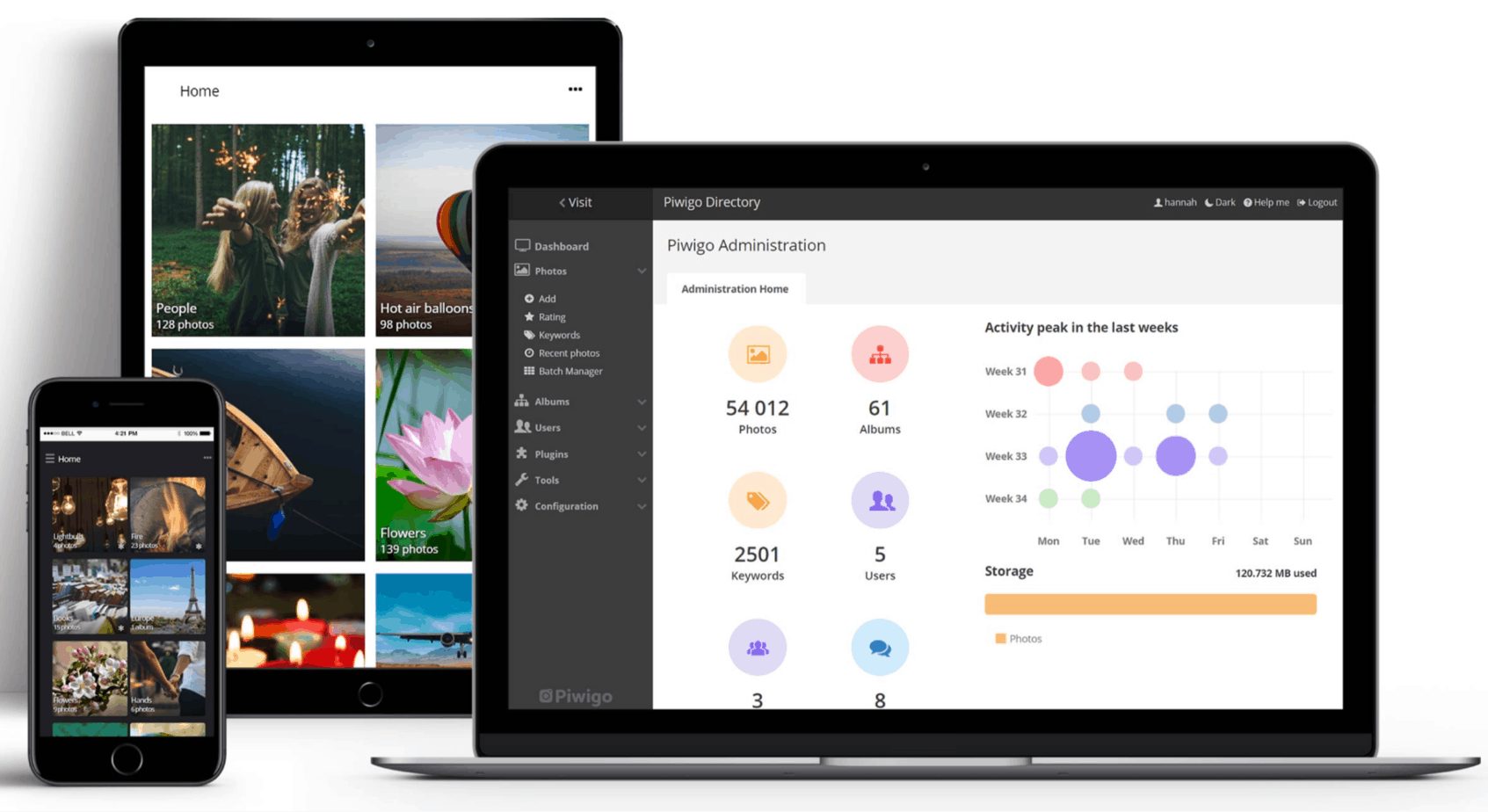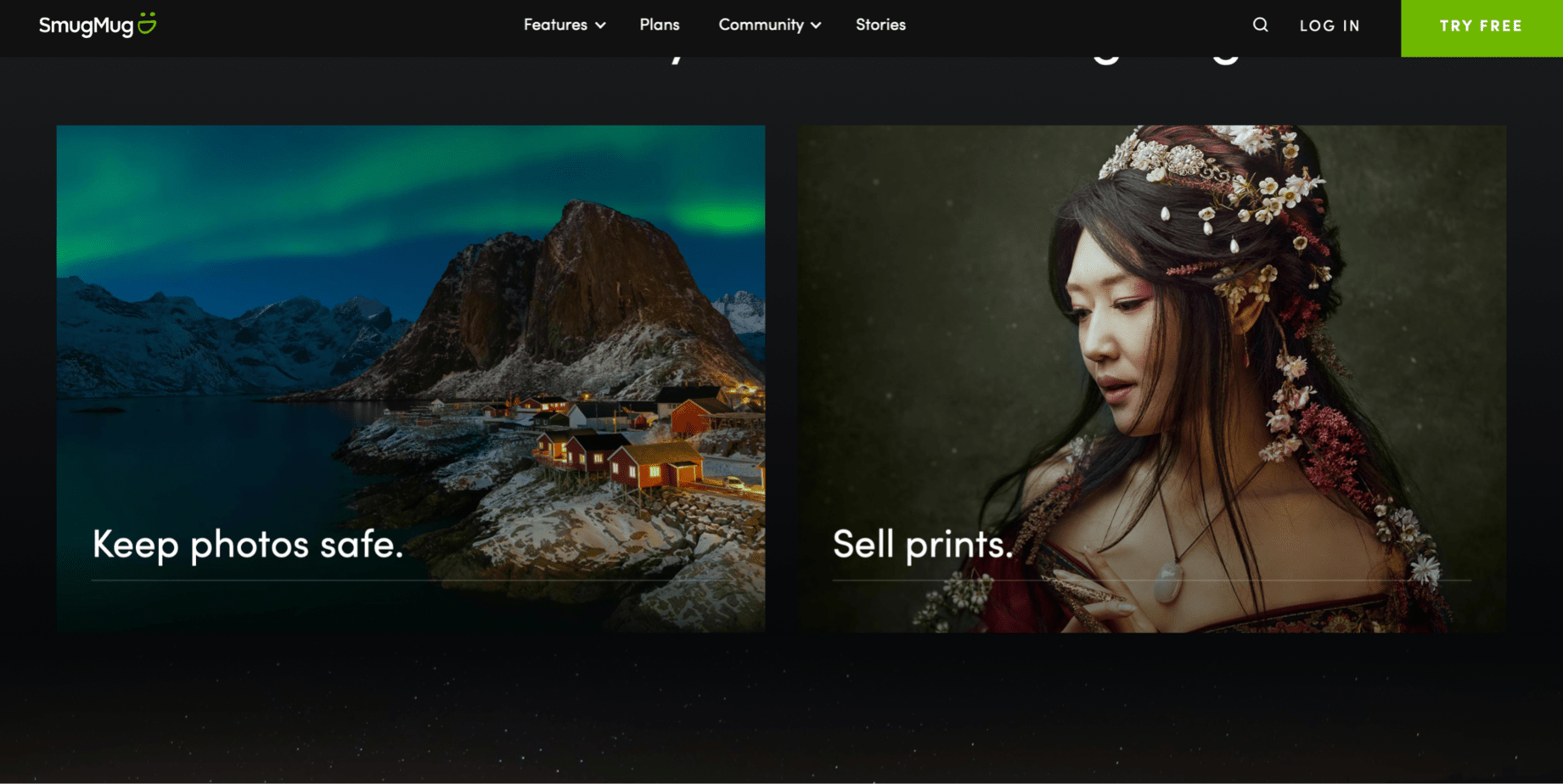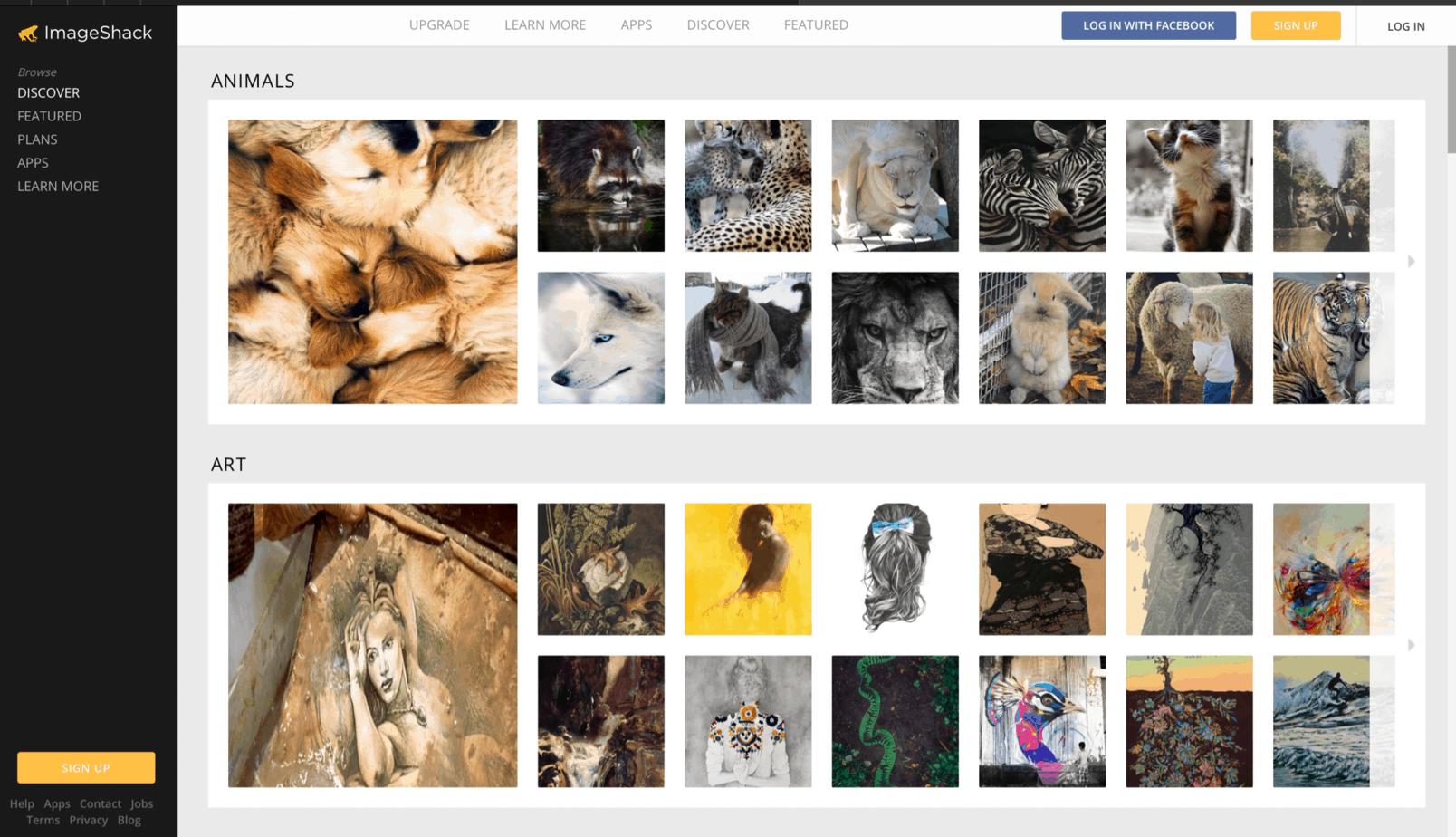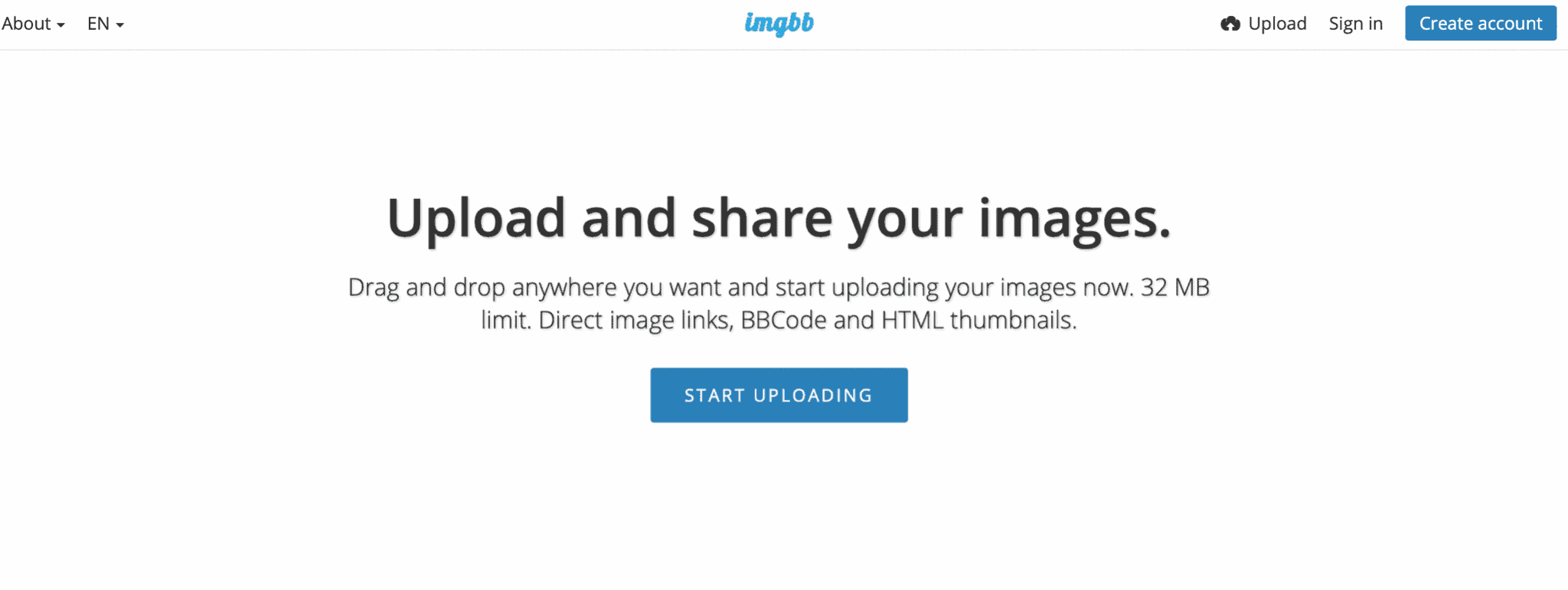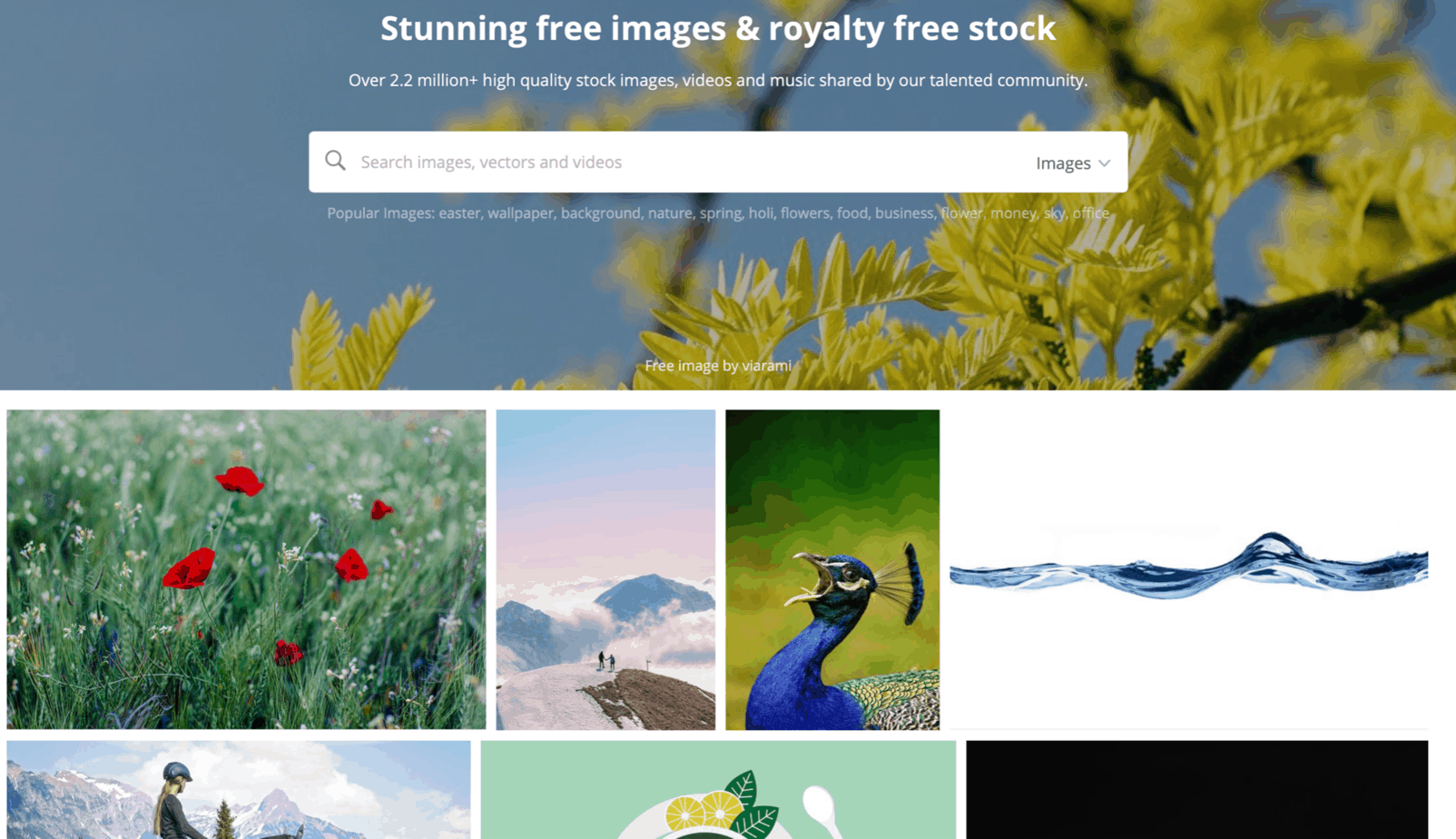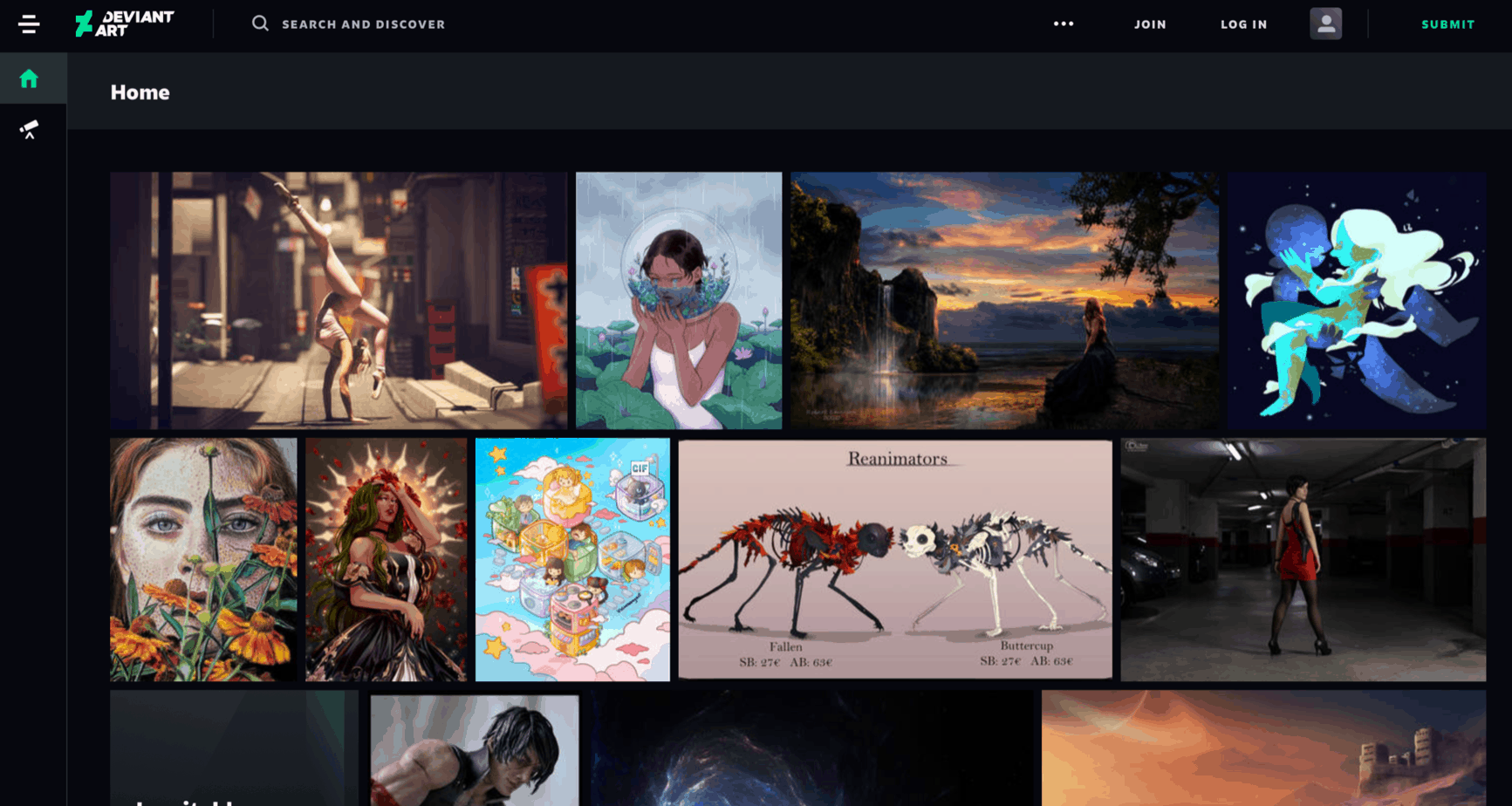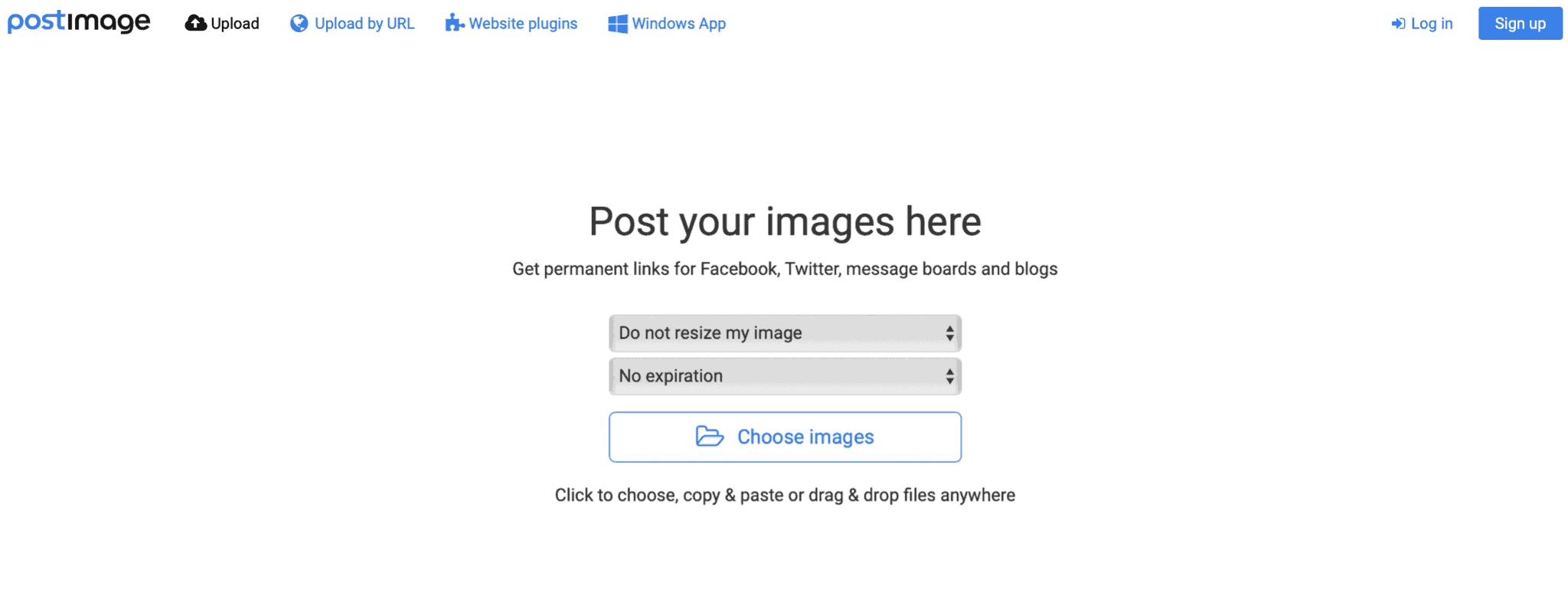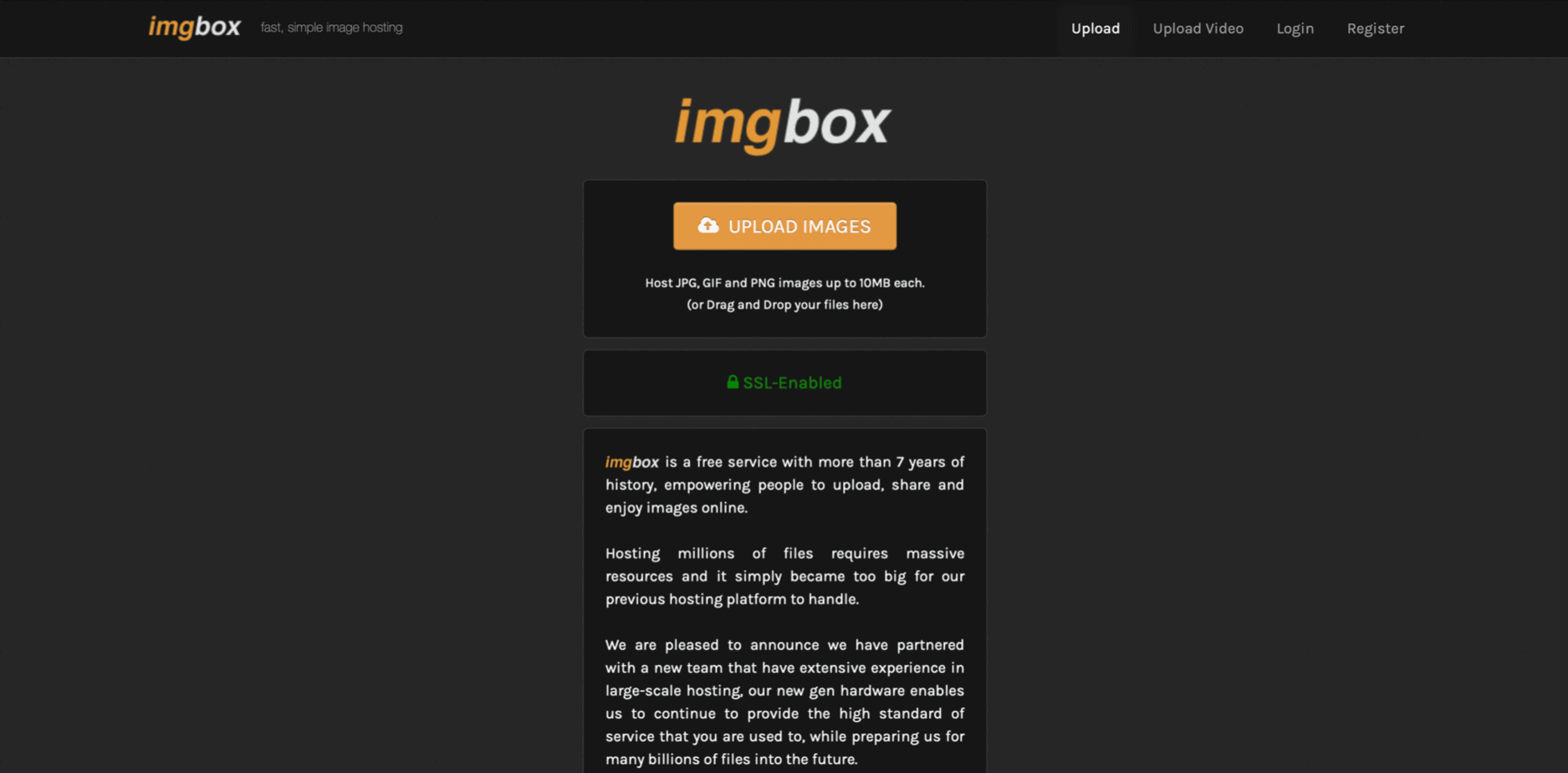Since its launch in 2003, Photobucket rose to popularity and became one of the best image hosting sites with millions of users who trusted it with their memories.
However, the company introduced a sudden, exorbitant price increase that saw it lose a significant number of users while others accused it of extortion. Not only that, but users decried the many ads in the free version, slow uploading, and downloading of bulk images among other issues.
After a disastrous year of monetary losses and a massive drop in traffic, the company has been trying to regain the public’s trust and be seen as the site people can trust to store their photos forever. This is a major turn from 2017 when they quietly introduced the $399 annual fee to embed images on other sites.
Several competitors have since taken over Photobucket’s position and are offering different features that appeal to different users.
Best Photobucket Alternatives
If you’re looking for the best Photobucket alternatives to choose from, we’ve got plenty of image hosting options to help you decide on the best one for your needs.
1. Google Photos
If you’re a casual photo sharer, Google Photos is the best image hosting platform with free unlimited storage, superb mobile apps, and other great features.
The app, formerly Picasa Web Albums, comes preloaded in Android devices and stores your images on Google’s servers.
Google Photos can recognize faces, and its search capabilities can help you search for photos but also text in an image and locations.
However, the private image hosting service has a few limitations. For instance, it lacks tagging options, poor integration with popular content management systems, and limited ability to manage photos.
While Photobucket offers a free account, it limits you to 250 images and doesn’t allow you to host them on external sites. With Google Photos, you get unlimited storage for free and you can use your images however you want, but if you want to store photos in their original resolution, you’ll have to pay extra for that.
Also included with Google Photos are features like Memories, which displays your videos and photos from previous years, and you can backup photos from your device via WiFi.
You can also backup and sync images from your computer or mobile phone and use the Gallery Go feature to automatically organize your photos and make them look their best.
Also Read: Ripl Vs Canva
2. Piwigo
If you want to have your own site, you can go with Piwigo, which shines when it comes to classifying high-volume photos. The open-source site was born in 2002 and has been supporting various users for almost two decades now.
Piwigo is scalable, offers more control, features, and flexibility for your image-hosting needs.
Like Photobucket, Piwigo isn’t free to use and requires time and know-how to use it. Plus, it lacks mobile apps that you can use with your mobile devices to upload and save your photos compared to Photobucket, which offers mobile apps to its users.
The self-hosted photo gallery solution lets you implement your own photo hosting site though, which is a major difference with Photobucket. You get a comprehensive set of features including tags, albums, themes, privacy, plugins, management and statistics tools, plus much more.
A batch manager is included to help you filter, select, and apply batch actions to your photos such as changing authors, adding tags, and setting geolocation among other things. You can also add photos with the web form, a desktop app, mobile apps, or any FTP client.
Explore: Canva Vs Bannersnack
3. Dropbox
Dropbox is a quick, simple, and efficient cloud storage solution that helps you store not only your photos and videos but also documents and other files. The virtual box allows you to drop your photos and they’re saved in the cloud so you can access them whenever you want.
If you open a Personal account, you can use Dropbox Family, which allows everyone in your home to safely store and share their photos, videos and other important files in one place. You also get peace of mind knowing that if you lose any photos or they get deleted, you can restore them in a cinch through the file recovery and version history feature.
Dropbox also lets you keep your photos up to date and share them with anyone even if they don’t have a Dropbox account. Plus, your images are secure with the multiple protection layers Dropbox provides.
You can also collaborate with others and stay in sync as Dropbox automatically backs up your files to the cloud. The service also lets you organize folders and sub-galleries, and then share links with others so they can access the files or folders.
If you give your collaborators access, they can also download photos from Dropbox.
Unlike Photobucket, which offers its service in paid subscriptions, Dropbox is free to use for up to 2GB of encrypted storage so you can store or share a few files for a quick project. However, this free version is for only one user.
Dropbox also offers integration with popular apps including Zoom, Slack, Trello, Adobe Photoshop, Google Apps, Office programs, and Canvas.
Check Out: Canva Vs Crello
4. Amazon Prime Photos
Amazon Prime Photos is included for free with a Prime membership. You can store unlimited full-resolution photos through the service and back them up on your phone, tablet or computer, share privately with loved ones, print the images, and more.
Plus, you can use Amazon Prime Photos on your Echo Show or Spot and Fire TV, too.
The service offers an easy way for you to save and share your snapshots, vacation moments, and you can view them from any device of your choice. You can even set your photos as a screensaver on your Fire TV – which you won’t find with Photobucket – and enjoy them on any screen in your home.
Your photos are stored exactly how you took them so they won’t be down-sampled to save space on the Amazon servers. This way, you’ll always have the highest possible resolution file.
All you need to do to use it is download and install the Amazon Photos app and backup your photos from your device. Turn on auto-save for the app to save your photos automatically to your account, and they’ll be backed up safely in the cloud.
You also get to use the This Day feature, which displays photos you took at some point in time or as far back as your photos go. You can search by date, people, or things in the images, and organize them in albums automatically.
What’s more, Amazon Photos allows you to print your photos, which you won’t find with Photobucket, and you can order prints from the app on your device. You also get to share your unlimited photo storage with up to five other people or create a Family Vault and invite loved ones to access and view the photos you add or add their own.
5. SmugMug
SmugMug is designed to help photographers and users who want to make a living out of their photos host unlimited photo uploads on the site. Not only that, but you get to share photos and sell personalized gifts and prints.
The platform provides quality features and you can choose from many stunning themes when you want to create a website, along with tools to customize the design templates.
SmugMug also lets you create and set up your own eCommerce store to sell prints of the photos you’ve uploaded, which you won’t get with Photobucket. Plus, the responsive designs you get with SmugMug adapt easily to computers, monitors, and mobile devices.
You can also use powerful SEO tools like meta tags and site maps that you’ll find in SmugMug, high-resolution photo and video storage or upload, and access control.
The service offers HTML and CSS integration, beautiful templates, and drag and drop customization to help you build a portfolio and site.
You won’t have to worry about the service mining, sharing, or selling your images or videos as it guarantees you uncompromised security. Plus, you can print quality photos using SmugMug, which Photobucket doesn’t provide, or edit your images with advanced image editing software.
SmugMug doesn’t have a completely free option, but you get free bandwidth, free storage (which Photobucket lacks), and cool features like personalized paintings to transform your images into paintings. It also lacks multiple integrations with other services.
6. 500px
500px is another popular photo hosting platform created with professional photographers in mind. The site displays your images and offers a free version that you can upload up to seven photos per week.
The primary function of the site is for you to showcase your photos, and not to share them on social media, so you won’t be able to link to other sites as you would with Photobucket.
However, it offers better benefits like networking, with other photographers and great display. You can follow your favorite photographers, share your images with others on the platform, and comment on their photos.
To get started, you can build your own high-quality website and portfolio from where you can share your work externally and build your brand.
You can also license your images as stock photos to get commission on any sales. 500px offers 60 percent royalties, which is one of the industry’s highest rates once you license your images exclusively with its global distribution partners and get paid for your work with 500px licensing.
500px is also more affordable than Photobucket as you not only get 40 percent off your first membership, but you also pay a lot less per month for its Pro membership. Plus, once you’re a member, you get access to statistics on how your photos perform, a customizable profile, unlimited uploads, and priority directory listing.
7. Flickr
Flickr is an established online photo management and sharing platform that’s now owned by SmugMug. The application is designed to help you make your photos available to your loved ones and others who matter to you while enabling new ways for you to organize your images and videos.
You can keep a blog of moments you captured on your device or show off your images to the world. You can also organize your files into albums and give your loved ones access to your stuff so they too can view, comment, add notes, and tag themselves too.
One of the main advantages Flickr has over Photobucket is that it allows for social networking so you can share your photos with the community and even join photography genre groups.
Plus, you get free image hosting, and you can edit your privacy settings to control who can view and who cannot view your photos or videos. In addition, you can use the free plan to upload up to 1000 high-res photos.
8. Imgur
If you want an image hosting site that offers fast and convenient uploading, Imgur is worth considering. The platform hosts some of the funniest, inspiring, and most informative images, GIFs, visual stories, and memes served up in an endless stream of snackable fun.
Imgur is powered by a passionate community of over 250 million people per month compared to Photobucket’s 90 million, and you can join to share cool stuff or vote the best to the top.
You can sign up to use Imgur with no limitations at all. However, you may experience lossy compression on some photos when using the service.
Imgur allows you to upload up to 50 photos per hour, per IP address, with the maximum file size for GIFs being 200MB and non-animated images being 20MB. If you have one-minute videos, you can upload those too.
Your files remain online forever, but Imgur isn’t ideal as an online backup service for your images.
Plus, Imgur works with any photo formats including JPG, JPEG, PNG, BMP, APNG, PDF, XCF, TIFF, and more. This gives it a competitive advantage over other providers on this list.
You can also add captions on your images, upload via email, directly link them, and embed them in HTML just as you would with Photobucket.
The good news is that Imgur is free to use unlike Photobucket, whose free account limits you to 250 image uploads, after which you may have to upgrade to a professional plan.
9. Flickr Pro
If you want to be in a big community, you can join Flickr Pro and get unlimited storage, smart photo management, and neat editing tools. This is the Pro version of the original Flickr, and it provides advanced statistics as well as discounts from Blurb, SmugMug, Capture One, PHLearn, Priime, Pixsy, and Adobe.
The service gets a more professional photography audience compared to the casual type who prefer gifs and other amateur images.
On top of storage and editing tools, Flickr Pro also lets you enjoy ad-free browsing and a desktop auto-uploader. You can also print your favorite images right from your Flickr account compared to a Photobucket account, which doesn’t offer that feature.
Flickr also offers a huge photo community, which is its unique selling point and the discounts you enjoy aren’t available on Photobucket, which doubtless makes Flickr Pro more tempting.
10. ImageShack
ImageShack is a photo hosting site that allows you to upload your photos, sync with your mobile and computer devices, and share them with full control of privacy. You can share one image or a whole album with other people or host the images for your forum or site.
To use ImageShack, you’ll need to sign up for an account and then you can upload quickly and get any link type you need to share your photos. You can also hit the Discover link and get new inspirations from others or follow other people including your loved ones or your favorite photographers.
ImageShack offers secure online file sharing using SkyPath, which backs up your Photo Library on your device within seconds. You can also use it to transfer images across all your mobile devices and keep them in sync.
SkyPath comes absolutely free once you create an account with ImageShack, which is different from Photobucket, which offers security within its paid plans only.
Unlike most other alternatives, ImageShack offers up to 10GB for free accounts and you get to layout your photos with an interface similar to Pinterest. Your free account gives you access to organize and tag photos, keep your images private or share them, and more.
Premium features include direct linking, statistics, space, and watermarks for your images, which is a nice bonus.
11. Imgbb
This is a little-known photo hosting platform that’s available for free and allows you to upload photos and share them with others.
Imgbb offers integration solutions so you can also upload your images to forums. Unlike Photobucket, which is a huge site and not as easy to navigate, Imgbb is more minimalist and easy to use, which is probably why it’s so popular.
All you need to do is drag and drop your photo files to the home page or upload them from your device and you’re good to go.
The site has limitations on uploading files, but you’re not restricted on the number of images you can upload or how long they can stay online. Plus, you don’t necessarily have to register to use the site.
However, the site doesn’t support copyrighted images, so anytime you upload, they’ll be verified to check if they comply with the regulations.
12. Pixabay
Pixabay is another popular photo hosting website that’s known for being an online community of people who publish high-resolution and copyright-free photos and videos.
The site is free to use but you’ll need to sign up to use it and adhere to stringent guidelines on image quality. This means that all your photos will undergo vetting by human editors before they’re uploaded.
Unlike Photobucket, which has mobile apps, Pixabay’s mobile apps don’t support direct image uploads. Plus, your images must be at least 3,000px and up to 40MB.
While Photobucket limits you to 250 images with its free account, Pixabay allows you to upload up to 100 photos every day, and the more high quality they are, the higher your chances of uploading more daily.
13. DeviantArt
DeviantArt is designed for users who want to upload more abstract kinds of photography. However, you’re not limited to abstract images so you can upload traditional, street art, sculptures, body art, drama, adventure, action, and poetry too.
You have to register to upload unlimited images unlike Photobucket, which caps its uploads to 250 for a free account, and the size of each file should be a reasonable 30MB.
The platform has a thriving community of 44M+ users and is great for people with an interest in counterculture.
14. PostImage
PostImage is a free online platform for hosting images. The platform, which was founded in 2004, provides message boards with an easy way to upload images without worrying about costs as you would on Photobucket.
It’s also fast, reliable, and perfect for linking to your blogs and other sites. The service also offers guaranteed performance and uptime so you can get your images anytime you need them.
15. Imgbox
Imgbox is a free and simple image hosting service that allows you to upload, share, and enjoy your photos online. Unlike Photobucket, which requires you to sign up for an account, Imgbox is free to use without creating an account. Just click upload, select the photo resolution and you’re good to go.
You also get a shareable link plus, BB codes and HTML codes to embed your images on any site. The interface is fast, and you can upload unlimited photos of up to 10MB per image.
Wrapping Up
Finding an image hosting site among the many options available can be daunting.
Whether you’re a pro photographer or an enthusiastic hobbyist, you’re sure to find a good photo hosting service that suits your needs from these 15 Photobucket alternatives.
Tom loves to write on technology, e-commerce & internet marketing.
Tom has been a full-time internet marketer for two decades now, earning millions of dollars while living life on his own terms. Along the way, he’s also coached thousands of other people to success.

